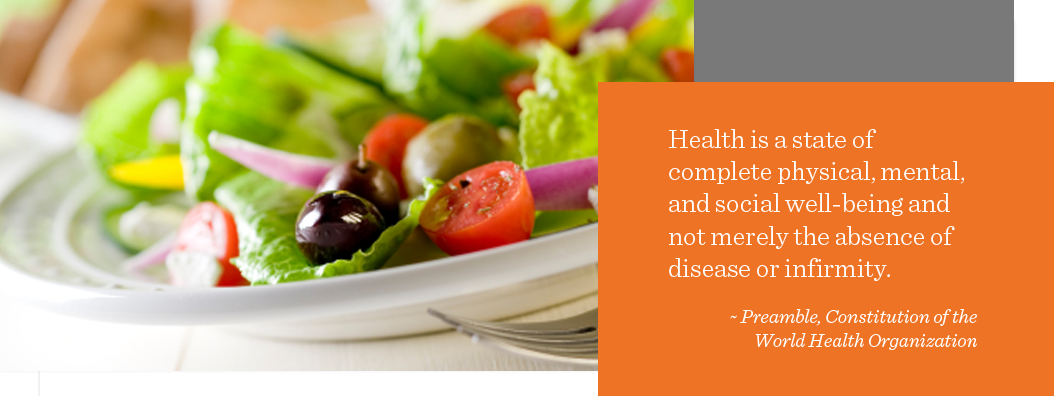Our New Patient Registration and Medical History forms are avaible on one PDF file for your convenience.

Lifestyle �related health problems such as heart attacks, strokes, cancer and diabetes are the most common causes of suffering and death worldwide. These diseases are also called "chronic diseases" from the Latin word chronos which means time. Chronic diseases take a long time of poor lifestyle habits to develop and they last for a long time if we don�t make lifestyle changes.
The term "lifestyle" refers to an individual's behavior and habits, this includes the work we do, how we spend our leisure time and what we choose to eat. Behavior and habits reflect our beliefs, attitudes, interests, values and self-concepts. These are influenced by our culture, family, friends, education, social groups and economic status. While the media and some medical professionals still focus on our genes, the scientific evidence clearly shows that our behavior and habits are the most important determinants of all aspects of our health. Lifestyle can actually change the way our genes express themselves. This is why the term �lifestyle disease� is much better than the term �chronic disease� because it better describes the cause and the cure of diseases that are caused by behavior and habits.
All lifestyle diseases have similar underlying causes - poor eating habits, lack of exercise and refreshing rest, unresolved emotional conflicts, and uncontrolled psychological stress. Lifestyle Medicine is the branch of medicine that addresses these underlying causes. Lifestyle medicine is not alternative medicine because all good physicians advise their patients to adopt healthier habits. Lifestyle medicine actually shows patients how to do this in an easy, sustainable way.
Lifestyle medicine is a new medical treatment model for lifestyle-related diseases. In the current medical model practitioners give patients �medicines� to suppress the symptoms of lifestyle diseases. Physicians use pharmaceutical drugs, naturopaths and homeopaths use supplements and herbs, but the disease is still there. The symptoms and signs may be suppressed, but the underlying cause and the disease is still there and now you add the side effects of the treatment. Lifestyle medicine practitioners give patients the knowledge, skills and support to change their behaviors so that the underlying cause and the disease no longer exist. Patients are no longer the passive recipients of �medicine,� they are active partners in their treatment and care. A good example is diabetes care, oral medications and insulin will decrease blood sugar levels but the patient will still have diabetes. Advice to cut carbohydrates leads to disease progression but -patients who adopt a diet of whole unprocessed/minimally processed plant foods will completely reverse their diabetes. The problem is that very few patients are ever given this advice or told specifically how to do this. Some patients may not, but since we have no idea who will and who won�t all patients with diabetes should be given this option. This is how Lifestyle Medicine at Atlanta Lifestyle Medicine works.
